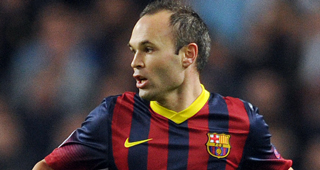Andres Iniesta suffered the most difficult year of his life between winning the 2009 Champions League with Barcelona and the 2010 World Cup with Spain.
“Not depression exactly, not illness either, not really, but an unease,” writes Iniesta in his book, The Artist. “It was like nothing was right.”
Iniesta had played the 2009 final injured and his friend, Daniel Jarque, died that August of a heart attack.
Iniesta was suffering both in body and mind.
Iniesta says he had felt as if he was in “freefall”. Unable to go on, he turned to the club’s doctors, seeking professional psychological treatment.
“When you need help, you have to look for it: at times it’s necessary. People are specialists; that’s what they’re there for. You have to use them.”
Iniesta writes about how delicate mental health can be.
“When you’re not right, you experience moments that impact upon you, that worry you,” Iniesta says. His words – te imponen respeto – defy simplistic translation but imply fear, a sense of the situation being bigger than you, beyond you, not entirely under control. “Those are difficult, uncomfortable moments [but] to go from there to certain extremes,” he says, “… well, every case has its peculiarities…”
“There are moments when your mind is very vulnerable. You feel a lot of doubts. Every person is different, every case. What I’m trying to explain is that you can go from being in good shape to being in a bad way very quickly.
“I never reached the point of saying: ‘I’m giving up.’ I understood that I was enduring a delicate moment but I took refuge in my people and, above all, in football. I never felt I didn’t want to continue playing. I knew one day I’d take a step forward, maybe the next it would be three, then five … it’s a process and that’s how you overcome it.
“People see footballers as different beings, as if we’re untouchable, as if nothing ever happens to us, but we’re people. Of course we’re privileged but in the tangibles we’re the same.”


